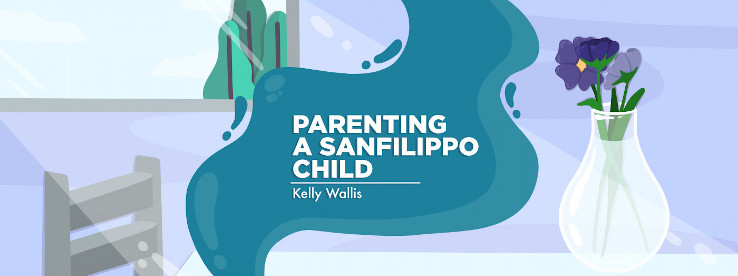To the caregivers of my daughter with Sanfilippo: I see and hear you
With a 2nd caring, attentive helper, our appreciation has more than doubled
Written by |

Our family recently gained a second caregiver for my daughter, Abby. Now we have two women who care for Abby and help provide respite for my husband and me. For families who have disabled children, caregivers are exceptionally important. They’re vital in allowing families to rest and recuperate.
Abby has Sanfilippo syndrome, which is sometimes called childhood Alzheimer’s. It’s a rare, genetic, terminal disease that’s gradually stripping her of all sorts of abilities, such as speech, cognitive functions, and motor skills. Abby is now 27 years old and functions as if she’s a baby about a year old. She requires a caregiver 24 hours a day for her safety and well-being.
Hiring another caregiver
We hired Abby’s first caregiver, Aly, in 2017, and she’s still with us. She loves Abby like a sister, and we know she cares for her accordingly. We appreciate how familiar she and Abby are to each other, and how much Abby trusts and feels safe with her. That’s so important to us and provides us peace of mind.
However, we’re glad to have more than one caregiver because the burden is shared. If Aly is unavailable, we have someone else to fill in for her: Dorothy. Even better, she lives five minutes away from us! Dorothy’s been caring for Abby for about three months now. She’s a natural caregiver and is so kind and sweet with our daughter.
Abby’s caregivers are so patient
I’ve noticed Dorothy building a relationship with Abby over the past few months. She’s soft-spoken and takes such time with Abby when guiding her, showering her, and feeding her. I feel like I’m always in a hurry to get things done, but Dorothy does these tasks with patience and love. It makes me rethink the way I approach my own daughter.
It fills my heart to see others attend to Abby’s needs so lovingly. The disabled who reach adulthood are so often forgotten. And those who can’t reciprocate in a conversation are also commonly discarded, almost becoming part of the furniture in the room. That’s not the case for Abby.
Acknowledging Abby’s caregivers
Aly and Dorothy, I want you to know I see you. I see the small things you do for Abby. You may think of them as insignificant, but they’re not. I see you take extra time and care with her. I see you help her into and out of seats to make sure she doesn’t fall. I see you cut up her food and make sure it’s not too hot before feeding her. I see you notice her changes in expression and switch the movie she’s watching to see if she likes the new one better.
I hear you, too. I hear you talk to her, even though she doesn’t talk back to you. I hear you react to her sounds and attempt to include her in conversations. I hear you sing to her. I hear you praise her when she tries to sing along or fills in a missing word here and there.
Aly and Dorothy, and all the caregivers out there who provide such love and understanding to those who need it: You are seen and heard. Know that every single act of love and kindness you show matters. Every small gesture can be so meaningful to both the patients and their families. Thank you for all that you do. If Abby could thank you, I know she would.
Note: Sanfilippo News is strictly a news and information website about the syndrome. It does not provide medical advice, diagnosis, or treatment. This content is not intended to be a substitute for professional medical advice, diagnosis, or treatment. Always seek the advice of your physician or other qualified health provider with any questions you may have regarding a medical condition. Never disregard professional medical advice or delay in seeking it because of something you have read on this website. The opinions expressed in this column are not those of Sanfilippo News or its parent company, Bionews, and are intended to spark discussion about issues pertaining to Sanfilippo syndrome.







Leave a comment
Fill in the required fields to post. Your email address will not be published.